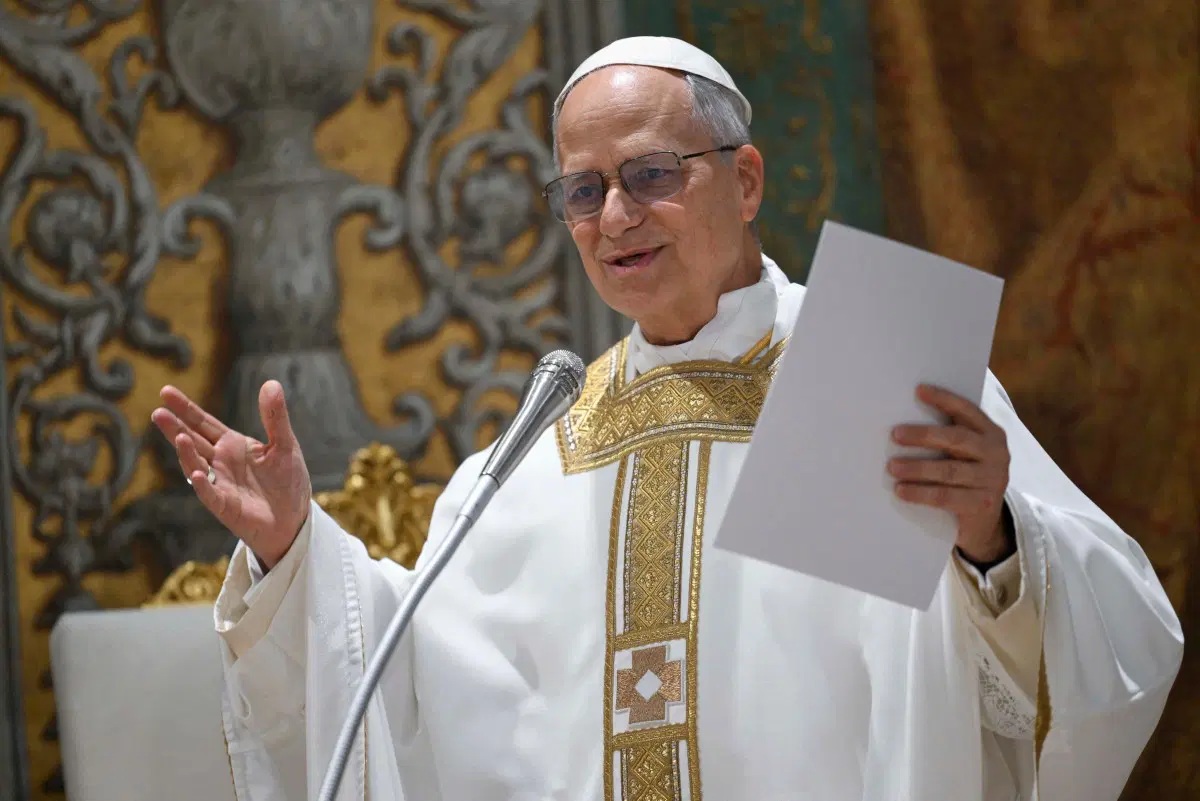On July 17, 2025, the world was shaken by reports that Gaza’s only Catholic church, the Holy Family Church, was struck during apparent Israeli military operations.
The assault led to the deaths of at least two civilians and left several others injured, including the parish priest, Father Gabriele Romanelli.
The church, a sanctuary for Gaza’s small Catholic community and many displaced families, sustained significant damage.
The strike occurred amidst ongoing conflict in the Gaza Strip, where civilian and religious sites have found themselves caught in the crossfire.
Pope Leo XIV’s Immediate Reaction
Pope Leo XIV responded swiftly to the tragedy through a heartfelt telegram sent by Cardinal Secretary of State Pietro Parolin.
In the message, the pope conveyed profound sorrow upon learning about the fatalities and injuries inflicted by the attack on the Holy Family Church.
He assured Father Romanelli and the entire parish community of his “spiritual closeness,” underscoring the Vatican’s concern for the safety and well-being of Gaza’s Christian minority.
The telegram went on to reiterate Pope Leo’s persistent call for an immediate ceasefire in the war-torn region.
Cardinal Parolin highlighted the pope’s enduring hope for “dialogue, reconciliation, and enduring peace.”
He emphasized the necessity for negotiations to halt hostilities and foster lasting resolution.
The Holy Family Church: A Refuge for Gaza’s Christians
The Holy Family Church is more than a place of worship; it has served as a critical refuge for hundreds of people since the outbreak of hostilities in Gaza.
According to Catholic authorities, nearly 500 people, including many children, those with special needs, and vulnerable elderly, have sought shelter within its walls.
The Latin Patriarchate of Jerusalem, which oversees Catholics in the region, confirmed that large parts of the church complex were destroyed in the attack.
Emergency responders reported that among the dead were individuals relying on humanitarian aid and psychosocial support inside the church compound.
The attack on the Holy Family Church strikes particularly deeply within the Gaza Strip’s Christian community, which numbers roughly one thousand, with only about 135 identifying as Catholic.
The rest are primarily from Orthodox traditions.
International and Local Reactions
The Vatican’s condemnation was echoed by numerous leaders and organizations worldwide.
Italian Prime Minister Giorgia Meloni quickly denounced the attack, characterizing it as an “unacceptable” assault against the civilian population.
She stressed that no military objective could justify such an event, particularly when it involves a religious site and innocent non-combatants.
The Israel Defense Forces acknowledged awareness of the reports concerning the church strike and stated that investigations were underway.
Official communications emphasized that Israel does not target religious institutions and asserted the military’s intention to avoid harming civilians or sacred sites.
Nevertheless, the tragedy follows prior incidents where other places of worship and medical facilities were damaged during the broader military campaign in Gaza.
The Pope’s Ongoing Appeal for Peace
Pope Leo XIV’s stance reflects a consistent Vatican position throughout the conflict, a call for an immediate end to violence, and a renewed plea for humanitarian access and negotiation.
The pontiff’s choice to focus on the need for reconciliation and peace, rather than blame, is in line with the Holy See’s diplomatic tradition and echoes previous interventions during the crisis.
His words offered comfort to the people of Gaza and served as a spiritual rallying point for Catholics worldwide.
He entrusted the souls of the deceased to divine mercy and extended prayers for the healing of the wounded and consolation for grieving families.
Devastation Amid Humanitarian Crisis
The strike on the Holy Family Church unfolded against the backdrop of increasing civilian casualties and a deepening humanitarian crisis in Gaza.
In the days surrounding the attack, Gaza’s civil defense agency reported numerous deaths resulting from ongoing airstrikes across the territory.
The impact on religious minorities, especially Christians, has been severe, with places of refuge now compromised, and already marginalized communities pushed to the brink.
Conclusion
The attack on Gaza’s Holy Family Catholic Church has galvanized international condemnation,
It has also shone a spotlight on the continuing vulnerability of civilians and places of worship amidst conflict.
Pope Leo XIV’s compassionate response highlights the urgent need for a ceasefire, humanitarian respect, and a movement toward peace and reconciliation.
As the region remains embroiled in violence, the pope’s message affirms faith, solidarity, and hope in the darkest of times.







